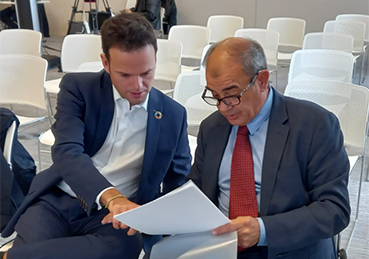The Commission Communication “Building an economy that works for people: an action plan for the social economy” has a nine-year horizon for implementation (2021-2030), and will be evaluated in 2025. Social Economy Europe considers the Social Economy Action Plan to be “an impressive EU public policy”, co-created with social economy actors, which offers a positive blueprint for Europe. An initiative that has the potential to expand the social economy in Europe beyond the 6.3% of total EU employment it currently represents.
“We very much welcome and support the Social Economy Action Plan that we have been working towards since 2014. The Social Economy Action Plan will provide concrete tools for social economy actors to expand across Europe and beyond our borders”, said Social Economy Europe (SEE) President, Juan Antonio Pedreño.
For SEE, the Social Economy Action Plan provides a clear and inclusive definition of the social economy in Europe. “In the context of this action plan and related EU initiatives, the social economy encompasses entities that share the following common principles and characteristics: the primacy of people as well as social and environmental purposes over profits; reinvestment of most profits and surpluses to carry out activities in the interest of members or users (‘collective interest’) or society at large (‘general interest’); and democratic and participatory governance.”
The definition specifically mentions the following social economy organisations: cooperatives, mutual societies, associations (including charities) and social enterprises.
In addition, the working document accompanying the Action Plan provides an in-depth analysis of the main organisational forms of the social economy, and explores emerging areas of activity such as healthcare, housing, the circular economy, insurance, renewable energy, social services, education, banking and finance, agriculture, forestry, industry, sport and leisure, etc.
The working document also makes an in-depth analysis of all the contributions and milestones that have led to this Social Economy Action Plan and outlines the relevant sources of EU funding to support the Social Economy in the period 2021-2027.
“The Action Plan includes some of our main policy proposals. The proposal for a Council Recommendation on the development of framework conditions for the social economy, which the Council should adopt in 2023; the new Single EU Social Economy Portal, to be launched in 2030, or the importance of supporting representative social economy networks in all EU Member States, as well as the emergence of local social economy contact points in all States, are fully aligned with the letter and spirit of our proposals”, assures Pedreño.
The Plan includes 38 concrete actions to be implemented over the next nine years in key areas such as: state aid, legal and policy frameworks, responsible public procurement and access to markets, promotion of the social economy at local, regional and international level; business support, skills, youth entrepreneurship, access to finance and European funds (InvestEU and other relevant programmes); contribution of the social economy to the green and digital transitions, social innovation, recognition and more.
In line with the EU Industrial Strategy, the Commission has also launched a Transition Pathway for the Industrial Ecosystem of the Social and Proximity Economy, which enacts a participatory process leading to a roadmap to be finalised during 2022. The Commission will mobilise different mechanisms to enable this process.
For Victor Meseguer, director of SEE, “this is a very good EU public policy, a policy that inspires and supports a positive project for Europe, a policy that will set in motion an entrepreneurial revolution. What excites us most at Social Economy Europe is the way forward. All hands are now needed to put the Plan into action: social economy actors, Member States, EU institutions, local and regional authorities, researchers, financial institutions, philanthropy and investors, GECES, etc. An adventure in which we hope to cooperate with our incredible network.







